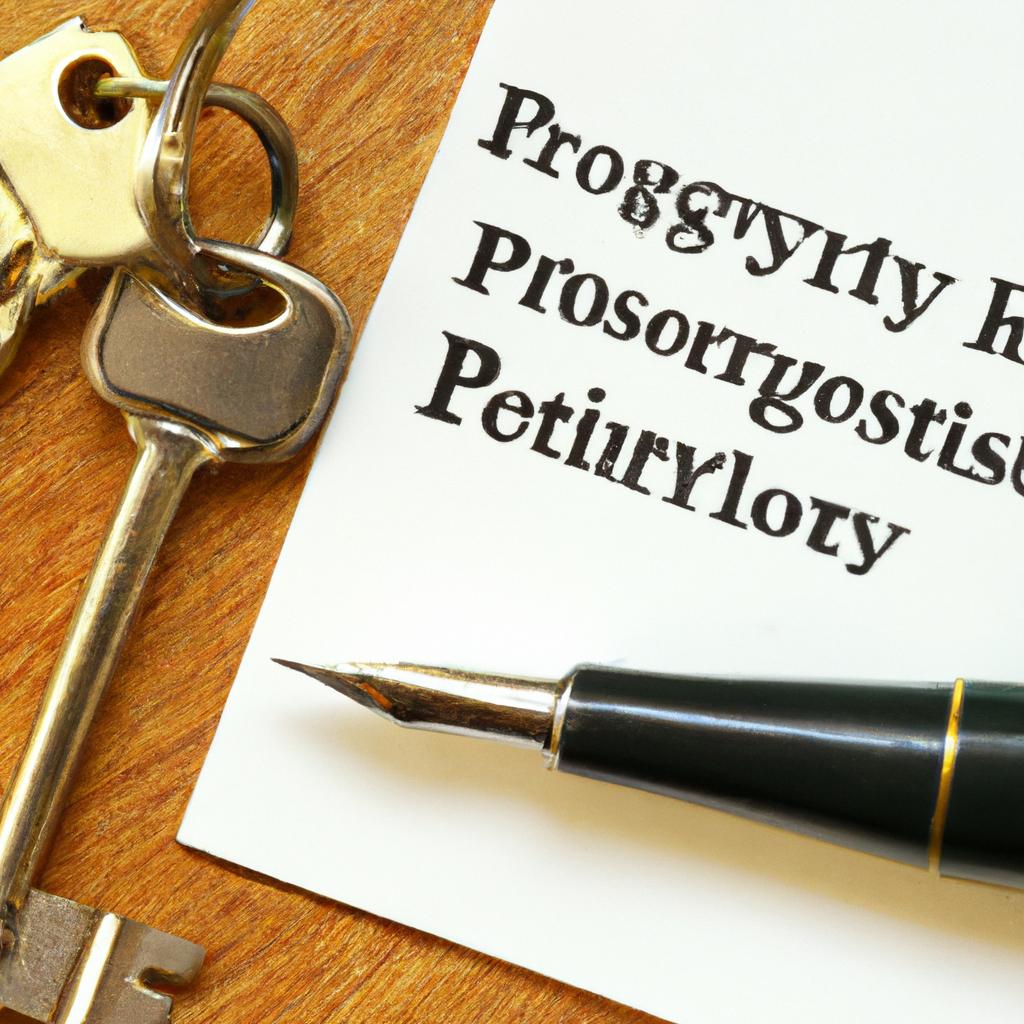In the complex landscape of property rights, the legal right to live in a house is a fundamental aspect of shelter and security for individuals and families alike. As seasoned practitioners in estate planning and elder law, the Morgan Legal Group, situated in the bustling metropolis of New York City, is well-versed in navigating the intricate nuances of this essential legal entitlement. Join us as we delve into the intricate web of laws and regulations that underpin the right to occupancy, and explore the safeguards and remedies available to ensure a stable and protected living environment for all.
Understanding the Legal Basis for the Right to Live in a House
When it comes to the legal right to live in a house, there are several key factors that must be considered. One of the most important aspects of this right is the concept of property ownership. In order to live in a house, one must either own the property outright or have a legal right to occupy the premises.
Additionally, there are certain laws and regulations that govern the relationship between landlords and tenants. Understanding these laws is crucial for ensuring that your right to live in a house is protected. It is also important to be aware of any zoning laws or building codes that may impact your ability to reside in a particular property.

Key Considerations in Establishing Your Legal Right to Reside in a Property
When establishing your legal right to reside in a property, there are several key considerations that must be taken into account. The first and most important factor is determining the ownership structure of the property. Whether you are a tenant, a co-owner, or a beneficiary of a trust, understanding your legal status is essential in asserting your right to live in the property.
Another crucial consideration is the documentation supporting your right to reside in the property. This may include lease agreements, deeds, wills, or trust documents. It is imperative to ensure that these documents are valid, up-to-date, and legally binding to avoid any disputes or challenges to your right to live in the property. By meticulously reviewing and organizing your legal documentation, you can safeguard your legal right to reside in the property and prevent any potential legal complications in the future.
| Ownership Structure | Documentation |
|---|---|
| Tenant | Lease agreements |
| Co-owner | Deeds |
| Beneficiary of a Trust | Trust documents |

Navigating Property Ownership Disputes and Legal Remedies
In property ownership disputes, understanding your legal right to live in a house is essential for protecting your interests. Whether you are facing issues with co-owners, tenants, or landlords, knowing your rights under the law is crucial in navigating through the complexities of property disputes.
<p>When it comes to asserting your legal right to live in a house, it is important to consider the following <strong>legal remedies</strong>:</p>
<ul>
<li>Seeking legal guidance from a qualified attorney specializing in property law.</li>
<li>Reviewing the terms of your lease or ownership agreement to understand your rights and obligations.</li>
<li>Exploring alternative dispute resolution methods such as mediation or arbitration.</li>
<li>Initiating legal action through the courts if necessary to enforce your rights.</li>
</ul>

Seeking Professional Legal Assistance in Protecting Your Right to Housing
If you are facing challenges in securing your legal right to housing, it is essential to seek professional legal assistance to protect your rights. At Morgan Legal Group, we understand the importance of having a safe and stable place to live, and we are here to help you navigate the complex legal system to ensure that your right to housing is upheld.
Our team of experienced attorneys is dedicated to advocating for your rights and will work tirelessly to ensure that you are able to remain in your home. Whether you are facing eviction, discrimination, or other housing-related issues, we have the expertise and resources to provide you with the legal support you need. Contact us today to schedule a consultation and learn more about how we can help protect your right to housing.
Q&A
Q: What does it mean to have a legal right to live in a house?
A: Having a legal right to live in a house means that you have the legal authority and entitlement to occupy and reside in a particular property.
Q: How is a legal right to live in a house established?
A: A legal right to live in a house can be established through various means, such as owning the property, renting or leasing it under a written agreement, or being granted occupancy rights through a legal process.
Q: Are there any limitations to a legal right to live in a house?
A: Yes, there are limitations to a legal right to live in a house, such as following the terms of a lease agreement, paying rent on time, adhering to local housing regulations, and respecting the rights of other occupants.
Q: What are the consequences of not having a legal right to live in a house?
A: Not having a legal right to live in a house can result in eviction, legal action, and potential homelessness. It is important to ensure that your housing situation is legally secure to avoid any negative consequences.
Q: How can one protect their legal right to live in a house?
A: One can protect their legal right to live in a house by familiarizing themselves with their rights and responsibilities as a tenant or homeowner, seeking legal advice if needed, and ensuring that all agreements and contracts are in writing and legally binding.
Final Thoughts
In conclusion, the legal right to live in a house is a fundamental aspect of human rights, providing individuals with security, stability, and dignity. By understanding and advocating for this right, we can work towards creating a society where everyone has access to a safe and affordable place to call home. Remember, a house is not just a physical structure, but a sanctuary where we can live, love, and thrive. Let us strive to uphold and protect this essential right for all members of our global community. Thank you for reading.
 Title: Legal Right to Live in a House: Understanding Your Rights as a Tenant
Title: Legal Right to Live in a House: Understanding Your Rights as a Tenant
Introduction:
Whether you are a renter or a homeowner, having a place to call home is a basic necessity for everyone. As a tenant, you have certain rights and protections under the law which ensure that you have a legal right to live in a house. These rights are put in place to protect tenants from any unfair treatment or unlawful actions by landlords. In this comprehensive guide, we will explore the legal rights of tenants and provide practical tips for ensuring those rights are upheld.
Understanding Your Legal Rights:
As a tenant, there are several legal rights that you are entitled to. These rights may differ slightly depending on your specific state laws, but they generally fall into four main categories:
1. Right to a Safe and Habitable Living Space:
Landlords have a legal obligation to provide tenants with a safe and habitable living space. This means that the property must be in a liveable condition, free from any health and safety hazards. The landlord is responsible for ensuring that the house meets all building codes, has proper plumbing and electrical systems, and is free from any infestations or mold.
2. Right to Privacy:
Tenants have a right to privacy in their rented homes, and landlords must respect this right. This includes receiving reasonable notice before entering the property, unless it is an emergency. A landlord cannot enter your home without permission, and they cannot give you a key to let themselves in at any time.
3. Right to Non-Discrimination:
It is illegal for landlords to discriminate against tenants based on race, color, religion, national origin, sex, disability, familial status, or any other protected class. This means that landlords cannot refuse to rent, impose different rental terms, or evict tenants based on these factors.
4. Right to a Fair Housing Process:
When it comes to eviction, landlords must follow the proper legal procedures. They cannot evict a tenant without a valid reason, and they must provide proper notice and go through the courts to do so. Tenants also have a right to challenge unfair evictions and have access to a fair and impartial hearing.
Practical Tips for Protecting Your Rights:
Knowing your rights as a tenant is one thing, but it is also important to take steps to ensure they are upheld. Here are some practical tips for protecting your legal right to live in a house:
1. Read and Understand Your Lease Agreement:
Your lease agreement is a legally binding contract between you and your landlord. It is essential to read and understand it before signing. Make sure you know what your rights and responsibilities are as a tenant, as well as the landlord’s obligations.
2. Document Everything:
Documenting everything related to your tenancy is crucial for protecting yourself against potential disputes. Keep a copy of your lease agreement, receipts for rent payments, and any other important documents. Also, take pictures or videos of the property’s condition before moving in and after moving out to have evidence in case of any damage disputes.
3. Communicate with Your Landlord:
Open communication with your landlord is key to resolving any issues that may arise during your tenancy. If you have a concern or a problem that needs fixing, address it with your landlord in writing and keep a record of all communication.
4. Know Your State’s Laws:
Landlord-tenant laws vary from state to state, so it is essential to know the laws that govern your specific location. This will help you understand your rights and provide you with legal grounds to challenge any unfair treatment by your landlord.
Case Study:
In 2018, a group of tenants in Maryland took their landlord to court for violations of their legal rights as tenants. The landlord repeatedly failed to address issues such as mold, water leaks, and pests in the property, which made it uninhabitable. The tenants took action by organizing protests, documenting the issues, and seeking legal advice. Eventually, they won the case, and the landlord was forced to pay for the repair costs and provide compensation to the tenants.
First-hand Experience:
Taylor, a tenant in Texas, had to leave her rental property because of roach infestations. She tried to communicate with her landlord multiple times, but he did not respond or take any action to resolve the issue. As a result, Taylor had to break her lease and move out. With the help of legal aid, she was able to get her security deposit back and compensation for her moving costs from the landlord.
Conclusion:
As a tenant, it is vital to understand your legal rights to ensure a safe and comfortable living space. If you believe that your rights have been violated by your landlord, do not hesitate to seek legal advice and take necessary action. By knowing your rights and taking proactive steps to protect them, you can ensure that you have a secure and stable living situation. Remember, you have a legal right to live in a house, and it is your responsibility to assert and protect those rights.

